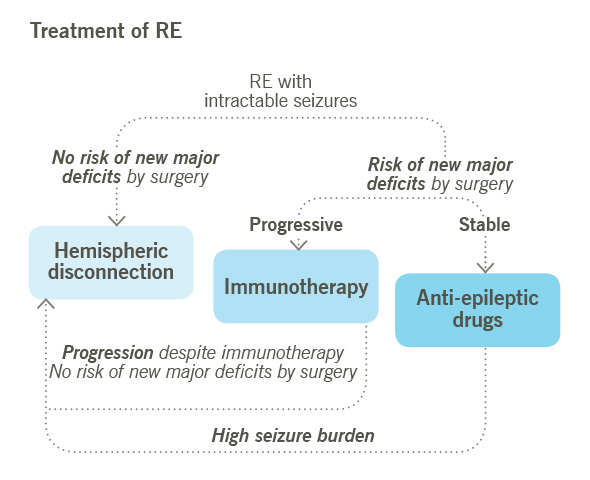There are many different types of encephalitis, ranging from mild symptoms to more severe ones. Symptoms can include: seizures, deafness, memory loss, convulsions, coma or death.
Encephalitis is commonly caused by an infection, such as: rabies, the herpes simplex virus, that causes shingles and chicken pox (this is the largest cause of encephalitis). Severe cases of encephalitis can result in complications such as meningitis, encephalitis caused by the influenza virus or the measles virus. These complications can range from mild to deadly.
If you think you have encephalitis, see your doctor right away. Don't delay seeking medical attention if you think you have encephalitis. Although this condition is relatively minor, the complications it can cause, especially the complications of meningitis, can be very serious.
Encephalitis symptoms range from mild to severe. The most severe form of the condition can lead to seizures, coma, or even death. Mild forms of the condition can lead to a variety of symptoms, including fever, headache, fatigue, loss of appetite, nausea, vomiting, and / or muscle weakness.
In severe cases, encephalitis can cause brain damage. Brain damage can occur in several ways, and you need to be aware of the possible symptoms before they become too late. In fact, it is very important to be able to recognize the onset of symptoms and then respond quickly to avoid further complications.
In more severe cases of traumatic brain injury, doctors do a series of tests to determine the extent of the injury. Once the extent of the damage is known, doctors will use treatments that can help reduce the effects of the brain injury and return your body to a healthy state.
If you have any of the following encephalitis symptoms, you should seek medical care immediately. These are: a low-level fever, headaches, nausea, vomiting, loss of appetite, loss of balance, seizures, coma or death. If you do not have these or experience any of these symptoms, there is a possibility that your condition is mild.
Severe cases of encephalitis can also be life threatening and require treatment as soon as possible. The symptoms mentioned above only represent some of the more severe complications of the condition, and should be treated immediately upon detection.

However, meningitis can result in many more complications than the ones described above
Meningitis and other infections can lead to permanent brain damage, permanent hearing loss, deafness, and blindness.
Your doctor will be able to provide treatment options for your specific case of encephalitis based on the severity of the condition. It is extremely important to discuss your symptoms with your doctor so that you can understand how to best treat them.
The treatment options for encephalitis depend largely on the type of brain damage the disease has caused. In general, children are treated more intensively than adults, and people who suffer from severe infections tend to receive special treatment.
If you or someone in your family has experienced an infection, the doctor will likely be able to provide various treatment options that will relieve the symptoms while still preventing more damage from occurring. For example, antibiotics can be prescribed to reduce inflammation.
Antibiotics have been shown to reduce the risk of developing encephalitis in children by as much as 40%. Some cases of meningitis can also clear up completely using this treatment option.
In very serious cases of meningitis, doctors may recommend that you stay in a hospital for several days to a week while you recover from the high fever. This is because the condition can affect the brain and other parts of the body, causing permanent damage to organs. This is why it is important to understand your treatment options when you experience encephalitis.
If your infection causes brain damage and permanent damage to your brain, you may need to undergo surgery. Unfortunately, this type of treatment is often reserved for very serious cases.
If you are unsure about your treatment options, you can speak with your doctor to help you make an informed decision about which method is right for you. You may need to undergo a series of tests to make sure that your condition is not caused by another condition, such as bacterial meningitis, that may require surgery as well.